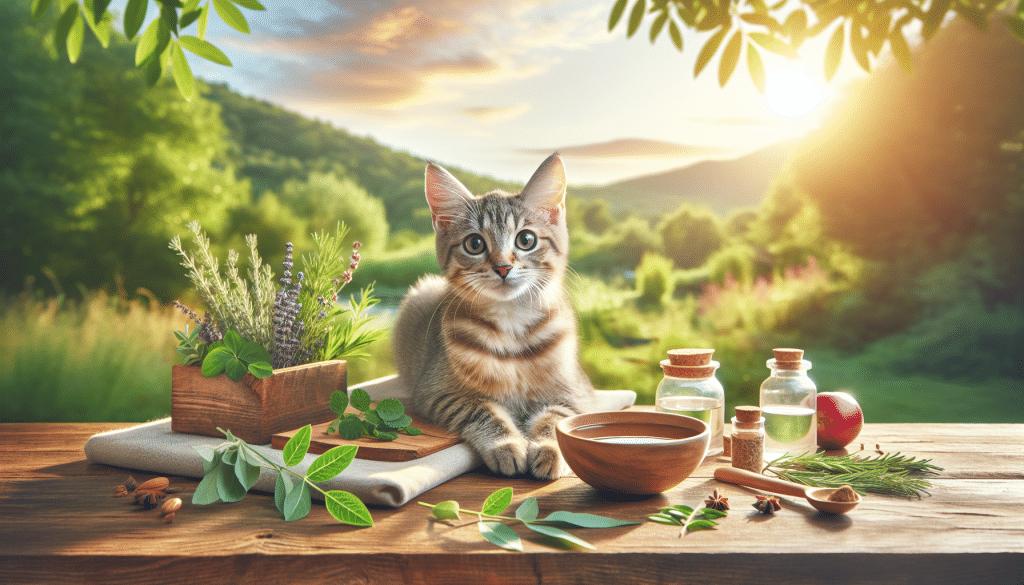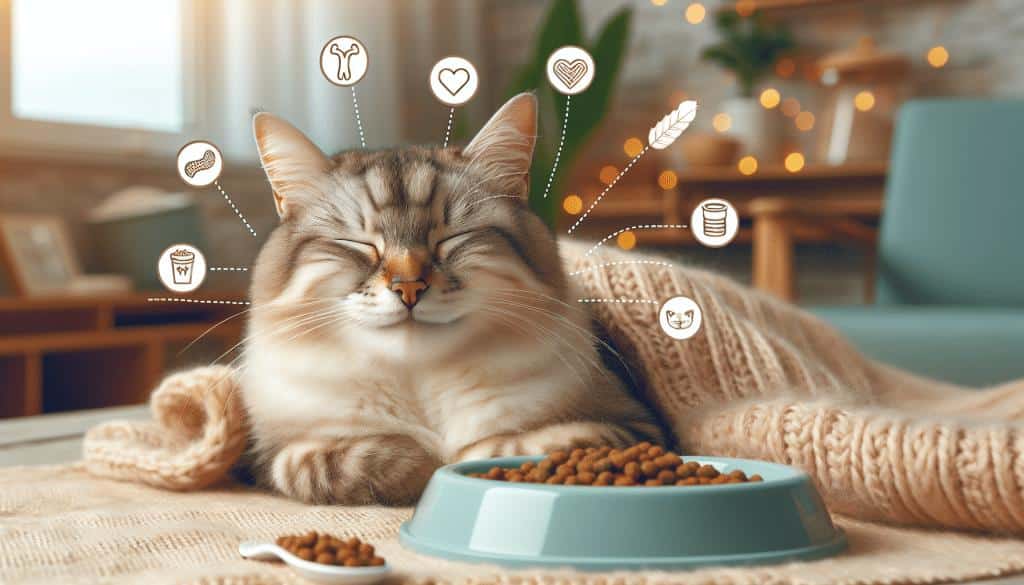Having a cat with a urinary tract infection can be concerning, but fortunately there are natural remedies that can help alleviate their discomfort. In this article, you will discover effective ways to treat your cat’s urinary tract infection without resorting to medication. From cranberry supplements to increasing water intake, these remedies will not only provide relief for your furry friend, but also promote their overall urinary health.

Understanding Cat Urinary Tract Infections
Cat urinary tract infections (UTIs) are a common health issue that can cause discomfort and pain for your feline companion. It is important to understand the significance of urinary tract health in cats and recognize the symptoms of UTIs to ensure prompt treatment and prevent complications.
Significance of Urinary Tract Health in Cats
The urinary tract plays a vital role in a cat’s overall health and well-being. It is responsible for eliminating waste and toxins from their body. When the urinary tract becomes infected, it can lead to various complications, including the formation of urinary crystals, kidney damage, severe pain, and even the possibility of urinary blockage. Therefore, maintaining a healthy urinary tract is crucial for your cat’s overall health.
Symptoms of Urinary Tract Infections in Cats
Recognizing the symptoms of a cat urinary tract infection is crucial for early detection and treatment. Some common signs to watch out for include frequent urination, difficulty urinating, blood in the urine, strong odor, crying or straining while urinating, and excessive licking of the genital area. If you notice any of these symptoms in your cat, it is important to consult a veterinarian for a proper diagnosis and treatment.
Types of Cat Urinary Tract Infections
Cat urinary tract infections can manifest in different parts of the urinary system. Understanding the different types of infections can help you better identify and address the issue.
Bladder Infections
Bladder infections, also known as cystitis, occur when bacteria enter the bladder and cause inflammation. This type of infection is more common in female cats and is often associated with stress, dehydration, or dietary issues.
Kidney Infections
Kidney infections, or pyelonephritis, occur when bacteria travel up the urinary tract and infect the kidneys. This type of infection is more severe and can cause significant damage if left untreated. Symptoms may include fever, lethargy, loss of appetite, and increased thirst.
Urethral Obstructions
Urethral obstructions, commonly seen in male cats, can be caused by urinary stones or a build-up of crystals in the urinary tract. This type of blockage can be life-threatening and requires immediate veterinary attention. Symptoms may include frequent attempts to urinate, straining with little to no urine production, and vocalization of pain.

Causes of Cat Urinary Tract Infections
Understanding the underlying causes of cat urinary tract infections can help prevent them from occurring or recurring in the future.
Dehydration
One of the leading causes of cat urinary tract infections is dehydration. Insufficient water intake can lead to concentrated urine, which creates an environment favorable for bacterial growth. Ensure that your cat has access to fresh water at all times and consider incorporating wet food into their diet to increase their hydration levels.
Dietary Issues
Certain dietary factors can increase the risk of urinary tract infections in cats. Diets high in magnesium and phosphorus can contribute to the formation of crystals or stones in the urinary tract. Additionally, a diet lacking in essential nutrients can weaken the immune system and make your cat more susceptible to infections. Consult with your veterinarian to determine an appropriate diet for your cat’s urinary health.
Underlying Health Conditions
Some cats may be predisposed to urinary tract infections due to underlying health conditions such as diabetes or bladder abnormalities. These conditions can weaken the immune system or interfere with the normal functioning of the urinary tract, making cats more susceptible to infections. Regular vet check-ups and addressing any underlying health issues can help prevent UTIs.
Stress
Stress can have a significant impact on a cat’s urinary health. Cats are sensitive animals, and changes in their environment or routine can lead to stress and anxiety. This can weaken their immune system and make them more prone to developing urinary tract infections. Providing a stable and stress-free environment for your cat, with plenty of hiding spots and opportunities for mental stimulation, can help prevent UTIs.
Potential Complications of Untreated Urinary Tract Infections
If left untreated, cat urinary tract infections can lead to various complications that can significantly impact your cat’s health and well-being.
Development of Urinary Crystals
Untreated urinary tract infections can result in the formation of urinary crystals. These crystals can cause irritation, inflammation, and blockages in the urinary tract, leading to further pain and discomfort for your cat. In severe cases, surgery may be required to remove these crystals.
Kidney Damage
Untreated or recurrent urinary tract infections can damage the kidneys over time. The kidneys play a vital role in filtering waste and maintaining the body’s fluid and electrolyte balance. Kidney damage can have long-term consequences for your cat’s overall health and may require ongoing management and treatment.
Severe Pain
Urinary tract infections can cause significant pain and discomfort for your cat. The inflammation and irritation in the urinary tract can lead to constant discomfort, making it difficult for your cat to urinate comfortably. This can result in behavioral changes and a decrease in their overall quality of life.
Possibility of Urinary Blockage
In severe cases, a cat urinary tract infection can progress to urinary blockage. This occurs when stones, crystals, or a buildup of mucus obstruct the urethra, preventing urination. Urinary blockage is a medical emergency and can be life-threatening if not treated immediately. Symptoms may include straining to urinate, vocalization of pain, and a distended abdomen.

Preventive Measures for Cat Urinary Tract Infections
Taking preventive measures can significantly reduce the risk of cat urinary tract infections and promote optimal urinary tract health.
Proper Hydration
Ensuring that your cat stays properly hydrated is essential for maintaining a healthy urinary tract. Provide fresh water at all times and consider using a drinking fountain to encourage your cat to drink more. Additionally, incorporating wet food into their diet can contribute to their overall hydration.
A Balanced Diet
Feeding your cat a balanced and appropriate diet is crucial for their overall health and urinary tract health. Opt for high-quality cat food that is formulated to support urinary health, avoiding diets that are high in magnesium and phosphorus. Consult with your veterinarian to determine the best diet for your cat’s specific needs.
Regular Vet Check-ups
Regular veterinary check-ups are essential for monitoring your cat’s urinary health and detecting any underlying conditions that may increase the risk of urinary tract infections. Your vet can perform routine tests and provide guidance on maintaining optimal urinary tract health for your cat.
Stress Management
Creating a stress-free environment for your cat is important for their overall well-being, including urinary tract health. Minimize sudden changes in their environment, provide ample opportunities for mental stimulation, and establish a routine that promotes a sense of security and stability.
Consulting a Veterinarian for Diagnosis
If you suspect that your cat has a urinary tract infection, it is crucial to consult a veterinarian for a professional diagnosis.
Importance of Professional Diagnosis
While there are natural remedies available for cat urinary tract infections, it is important to have a professional diagnosis to ensure that the correct treatment is administered. A veterinarian can perform a physical examination, evaluate your cat’s symptoms, and conduct diagnostic tests to determine the underlying cause of the infection.
What to Expect During a Vet Visit
During your visit to the veterinarian, they will likely ask you about your cat’s symptoms, medical history, and any recent changes in their environment or routine. They may then perform a physical examination, palpating the abdomen and checking the urinary system for any abnormalities. Depending on their findings, they may recommend further tests, such as a urinalysis or blood work, to confirm the diagnosis.
Understanding Test Results
Diagnostic tests, such as a urinalysis, can help identify the presence of bacteria, blood cells, or crystals in the urine. These results can provide important information about the type and severity of the infection, helping your veterinarian determine the most appropriate treatment plan. It is important to discuss the test results with your veterinarian to gain a better understanding of your cat’s condition.
Natural Remedies for Cat Urinary Tract Infection
In addition to conventional treatments, there are natural remedies that can help support the treatment of cat urinary tract infections.
Dietary Changes
Dietary changes can play a crucial role in managing and preventing cat urinary tract infections. Consider switching to a cat food formula specifically designed for urinary health, which may include ingredients that promote a healthy pH balance and the prevention of crystal formation. Additionally, providing a moisture-rich diet, such as wet or raw food, can help increase your cat’s overall hydration.
Herbal Remedies
Certain herbs can have beneficial effects on a cat’s urinary tract health. Herbs such as uva ursi and marshmallow root have anti-inflammatory properties and can help soothe the urinary tract. Consult with a veterinarian experienced in herbal medicine for guidance on appropriate herbal remedies and proper dosages for your cat.
Vitamin C
Supplementing your cat’s diet with vitamin C may help prevent the recurrence of urinary tract infections. Vitamin C, also known as ascorbic acid, helps acidify the urine and create an environment that is less hospitable to bacteria. However, it is important to consult with your veterinarian before starting any supplementation to ensure the safety and appropriateness for your cat.
Cranberry Extract
Cranberry extract is widely known for its ability to support urinary tract health in humans, and it can also have benefits for cats. Cranberry extract contains compounds that can prevent bacteria from clinging to the walls of the urinary tract, reducing the risk of infection. Talk to your vet about incorporating cranberry extract into your cat’s treatment plan.
Adequate Hydration
Ensuring that your cat remains adequately hydrated is essential for supporting their urinary tract health. Provide fresh water at all times and consider using a cat water fountain to encourage your cat to drink more. This can help flush out bacteria and promote a healthy urine concentration.
Ensuring Successful Treatment with Natural Remedies
While natural remedies can be beneficial for cat urinary tract infections, it is important to monitor your cat’s symptoms and ensure consistency with the chosen remedy.
Monitoring Your Cat’s Symptoms
Keep a close eye on your cat’s symptoms throughout the treatment process. If their condition does not improve or worsens, it may be an indication that the chosen natural remedy is not effective. In such cases, it is important to consult with your veterinarian for further guidance and treatment options.
Consistency with the Remedy
Consistency is key when using natural remedies for cat urinary tract infections. Follow the recommended dosages and administration guidelines provided by your veterinarian or herbal expert. Skipping doses or inconsistent use can hinder the effectiveness of the remedy and prolong your cat’s recovery.
Knowing When to Consult a Vet Again
If your cat’s condition does not improve within the expected timeframe or their symptoms worsen, it is important to consult your veterinarian again. A professional evaluation may be necessary to ensure that the infection is properly treated and to prevent any complications or long-term damage.
Associated Risks and Limitations of Natural Remedies
While natural remedies can have benefits for cat urinary tract infections, it is important to consider their effectiveness, possible side effects, and suitability for severe infections.
Effectiveness as Compared to Traditional Medication
While natural remedies can provide relief and support for cat urinary tract infections, they may not be as effective as traditional medication prescribed by a veterinarian. In severe or complicated cases, conventional treatment methods may be necessary to ensure a successful recovery.
Possible Side Effects
Natural remedies, like any treatment option, can have potential side effects. It is important to consult with a veterinarian or herbal expert for proper guidance and dosage recommendations to minimize the risk of side effects. Always be observant of any adverse reactions and discontinue use if any occur.
Suitability for Severe Infections
Natural remedies may not be suitable for severe urinary tract infections or cases that require immediate medical attention. In these instances, it is crucial to seek professional veterinary care promptly to prevent further complications or potential life-threatening conditions.
Holistic Approach to Cat Urinary Tract Health
Taking a holistic approach to cat urinary tract health involves considering all aspects of your cat’s well-being and integrating natural remedies into their daily routine.
Importance of Overall Wellness
Urinary tract health is closely linked to a cat’s overall wellness. Providing a balanced diet, ensuring proper hydration, managing stress levels, and addressing any underlying health conditions all contribute to the holistic well-being of your cat.
Balancing Natural Remedies with Preventative Care
Natural remedies for cat urinary tract infections can be a valuable addition to prevention strategies. However, it is important to integrate them with other preventive measures such as regular vet check-ups, maintaining a stress-free environment, and providing a balanced diet. This multifaceted approach can help reduce the risk of urinary tract infections and promote long-term urinary tract health.
Integrating Natural Remedies into Daily Routine
Incorporating natural remedies into your cat’s daily routine can help support their urinary tract health. This may include supplements, herbal preparations, or dietary changes. However, it is essential to consult with a veterinarian or herbal expert for proper guidance and dosage recommendations to ensure the safety and effectiveness of these remedies for your cat.
In conclusion, understanding cat urinary tract infections, their symptoms, causes, and potential complications is vital for ensuring your cat’s urinary health. By implementing preventive measures, seeking professional diagnosis, considering natural remedies, and taking a holistic approach, you can promote optimal urinary tract health and overall well-being for your furry friend. Remember to consult with your veterinarian for guidance and treatment options to provide the best care possible for your cat’s urinary tract health.



